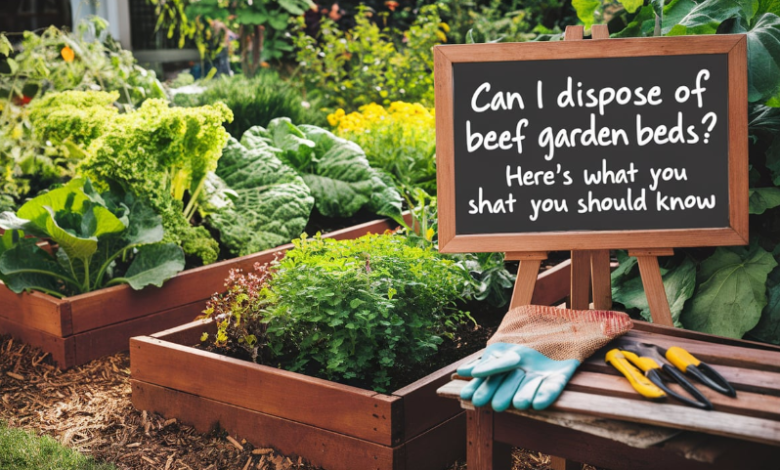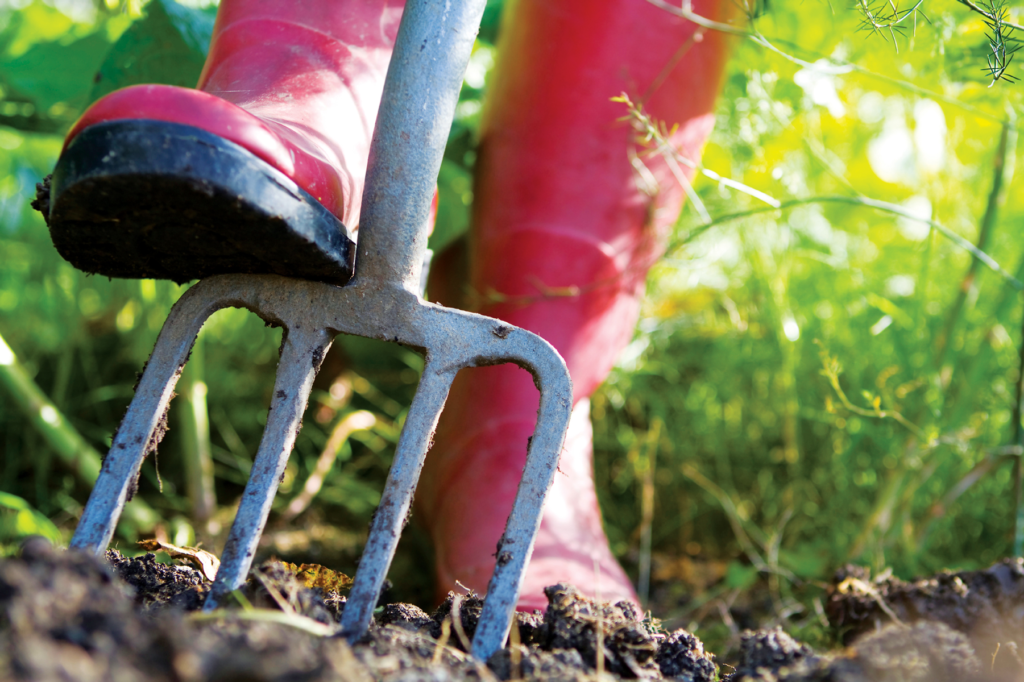Can I Dispose of Beef Stock in Garden Beds? Here’s What You Should Know

If you’re wondering, “Can I dispose of beef stock in garden beds?” the answer is not as simple as it seems. While beef stock is a natural liquid, it contains fats, oils, and proteins that might not be beneficial for your garden. In fact, pouring beef stock directly into your garden could lead to some problems, like attracting pests or creating an unhealthy soil environment.
Before deciding to dispose of beef stock in garden beds, it’s important to understand the impact it may have. Beef stock contains nutrients that plants usually need, but in a form that’s too concentrated for them to use properly. In the next sections, we’ll explore how to safely manage beef stock disposal and what alternatives might be better for your garden.
Can I Dispose of Beef Stock in Garden Beds? Here’s What You Should Know
If you’ve ever wondered, “Can I dispose of beef stock in garden beds?” you’re not alone. Many people are curious about whether leftovers like beef stock can benefit their plants. While beef stock contains nutrients that plants need, it’s important to be cautious about where you put it. Simply dumping beef stock into your garden beds might not be the best idea.
In this blog post, we’ll discuss the effects of beef stock on your garden, and if it’s safe or helpful to dispose of it directly in the soil. The truth is that beef stock contains fats and oils that are not easy for plants to break down. These fats could attract pests and disrupt the balance of your garden’s soil.
The Risks of Disposing of Beef Stock in Your Garden Beds

When asking, “Can I dispose of beef stock in garden beds?” it’s important to consider the possible risks. Beef stock has high amounts of fats, oils, and protein, which are not always beneficial for plants. While the nutrients in beef stock can be useful, the fats may create a greasy layer on top of the soil. This can prevent water from soaking into the ground, leaving your plants dry.
Additionally, the fats can attract pests like rodents or insects, which can cause further problems. The fats can also create an unpleasant smell in your garden. So, before you decide to pour leftover beef stock into your garden, think carefully about these risks and how they may affect the health of your plants.
Safer Ways to Dispose of Beef Stock for Your Garden
If you still want to use beef stock for your garden, there are safer ways to do it. Instead of pouring it directly into the garden beds, consider composting it. Composting helps break down the stock, making it easier for plants to use the nutrients. Hot composting, in particular, speeds up the breakdown process and helps avoid any negative effects on the soil.
Alternatively, you could add the beef stock to a food waste recycling program that can properly process it. This way, you can still recycle the nutrients while avoiding harm to your garden. Be sure to avoid using too much at once, as it could upset the balance of your compost pile or garden.
Can Beef Stock Benefit Your Garden Soil

You might still be wondering, “Can beef stock be good for my garden?” While beef stock does contain some nutrients, it’s not the best option for fertilizing. The high fat content in beef stock can cause problems by attracting pests and making the soil too greasy. In fact, it’s better to use other types of fertilizers designed specifically for garden use.
That said, if you use small amounts of beef stock mixed with compost, it can add a little nutrition to your soil. Just be sure to avoid overusing it. The best way to help your garden is by using proper organic fertilizers and compost that provide balanced nutrition for your plants.
Conclusion
In conclusion, while you might be tempted to dispose of beef stock in your garden beds, it’s better to think twice before doing so. Beef stock contains fats and oils that can harm your soil, attract pests, and prevent water from reaching your plants. Instead, try composting or using other safe methods to recycle the stock.
By following these tips, you can keep your garden healthy and your soil in good condition. Always remember to choose the best disposal methods for your leftover food items. A healthy garden depends on the right balance, and with careful choices, you can ensure your plants thrive.
FAQ
Q: Can I dispose of beef stock directly in my garden beds
A: It’s not recommended to dispose of beef stock directly in garden beds due to its high fat content, which can harm your soil and attract pests.
Q: What happens if I pour beef stock in the garden
A: Pouring beef stock in the garden can lead to greasy soil, preventing water absorption, and attracting unwanted pests.
Q: Can composting beef stock be safe for my garden
A: Yes, composting beef stock is a safer way to dispose of it. Just make sure to mix it with other compost materials to avoid issues with fat buildup.
Q: How can I safely recycle beef stock for my garden
A: The best way to recycle beef stock is by composting it or using a food waste recycling program to properly process it.
Q: Is beef stock a good fertilizer for garden beds
A: Beef stock can provide some nutrients but is not an ideal fertilizer. It’s best to use proper organic fertilizers designed for plant growth.




